Birmingham, Alabama choir upholds historic link to Wales
- Published
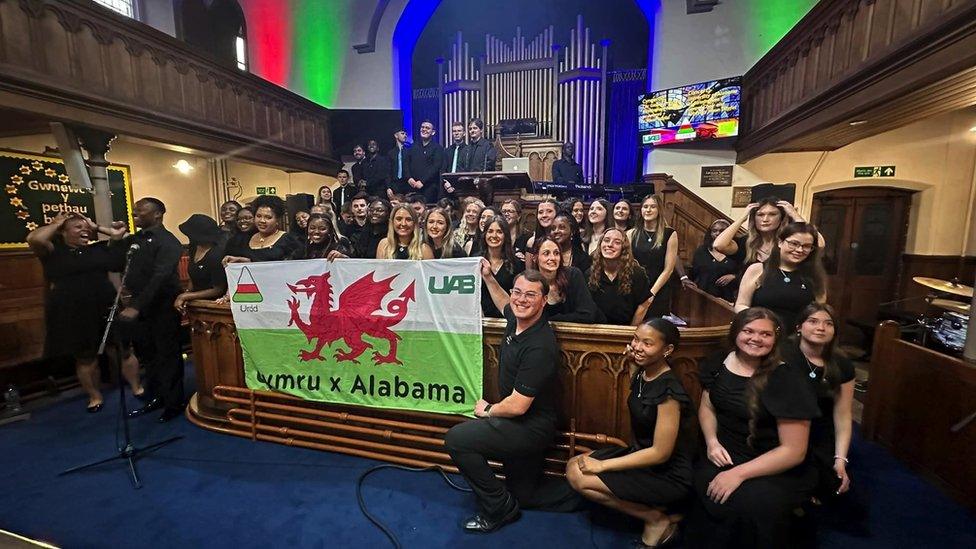
The University of Alabama gospel choir performed in Welsh as a part of the Urdd Eisteddfod festival
When a church in Alabama was bombed by the Ku Klux Klan in 1963, it received unexpected help from afar.
More than 4,000 miles (6,437km) away, a newspaper campaigned to repair the church's stained glass window.
The 16th Street Baptist Church in Birmingham soon became home to the Wales Window of Alabama.
In June, the University of Alabama at Birmingham's gospel choir visited the UK to nurture the relationship between their home and Wales.
The bombing on 15 September 1963 killed four young girls and injured several others, sparking outrage which spread well beyond the United States.
Across the Atlantic in Llansteffan, Carmarthenshire an artist read about the tragedy in his morning newspaper.
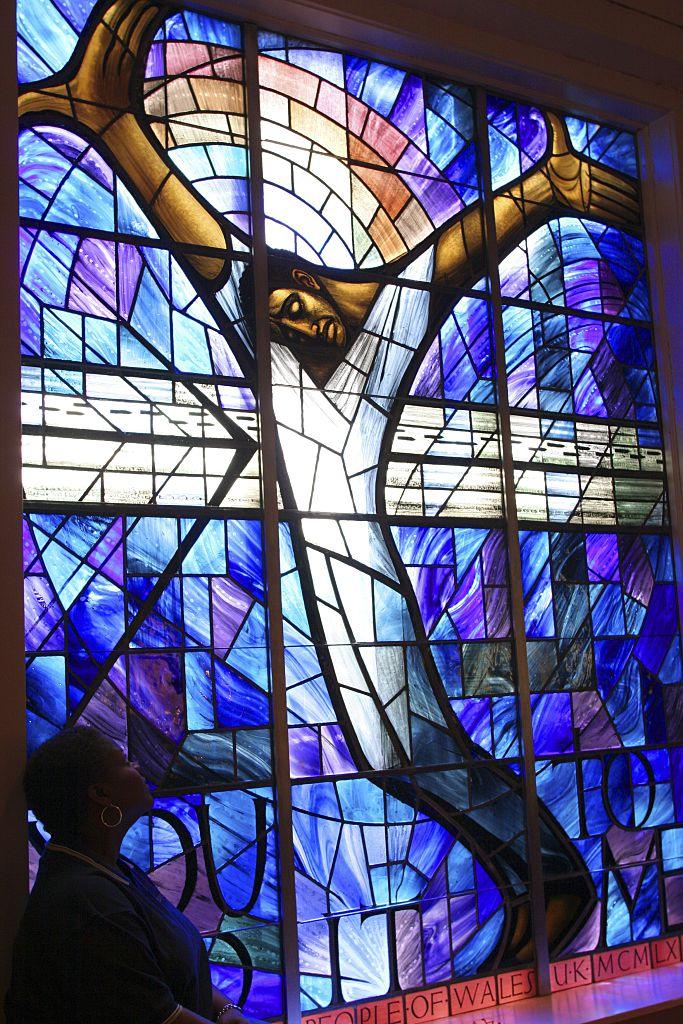
John Petts designed the replacement window, which depicted a black Jesus
John Petts, known for his stained glass works, decided he would help by designing and installing a new window for the church.
Once the idea had been shared with the editor of The Western Mail, an appeal was launched to raise money.
Speaking to the BBC in 1987, Mr Petts said: "They had never heard of Wales, they had no idea where it was, but they were very quickly told something of the little country Wales was, and how it put great value on independence and freedom, to bandy with the great big words.
"Thought has no real living meaning unless it's followed by action of some kind."
The Wales Window of Alabama, which remains in the church to this day, depicts a black Jesus and still gathers comment.
According to the director of the University of Alabama's gospel choir, the window creates a "wonderful" connection between Wales and the state.
Dr James Reginald Jackson visited Wales in June with a section of the gospel choir, thanks to an invite from a delegation that travels to Alabama each year.
"It was the trip of a lifetime," he said. "We were honoured to be there and it worked out very, very well."
As a part of the trip, the choir visited the Urdd Eisteddfod in Llandovery, Carmarthenshire, where they performed.
"We learnt some gospel music in the Welsh language," Dr Jackson said.
"We were struggling with the language, because it's so different from ours. But we did it, and it was something special for [the people at the festival] and special for us."
Dr Jackson added he was "moved" by the Welsh-language festival: "It was life changing, just to see the depth and breadth of the culture."
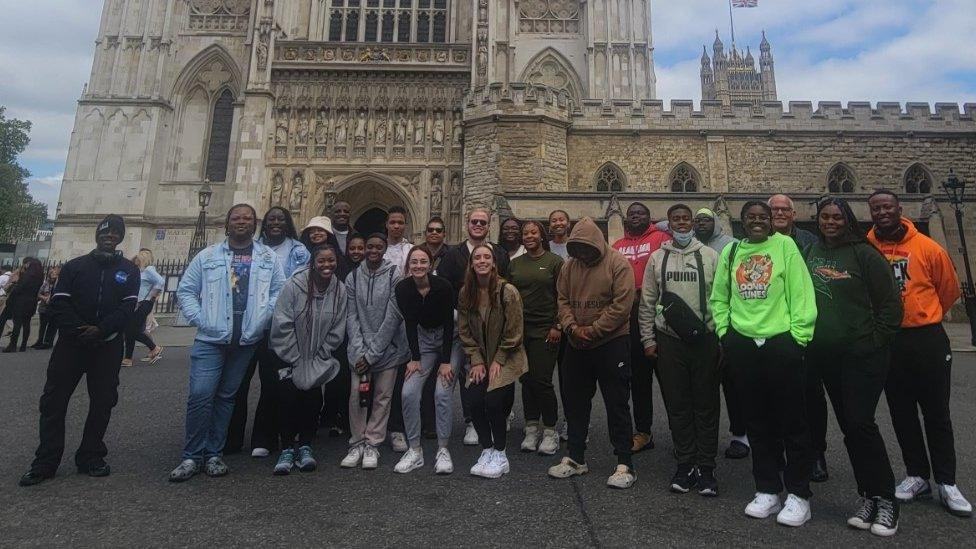
The UAB gospel choir were "honoured" to be invited to Wales, Dr Jackson says
He and his students also stopped by at the unveiling of a new mural in Adamsdown, Cardiff, entitled Call Them Out, as a part of their cultural tour.
Featuring rugby player Nia Fajeyisan, the mural is a response to the Urdd's 2023 peace and goodwill message, anti-racism, encouraging people to call out racism when they see it.
"That was special," Dr Jackson said of playing at the unveiling of the mural.
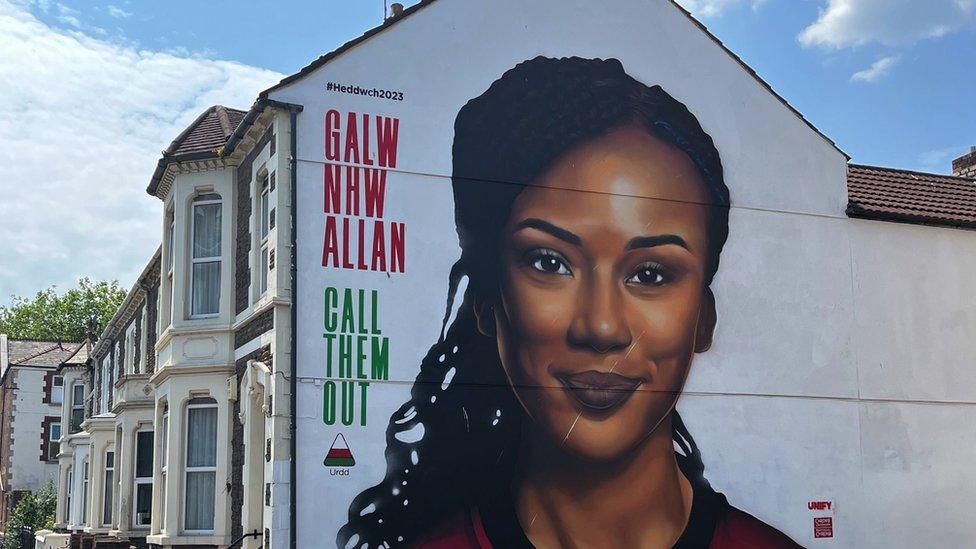
The Call Them Out mural honours Nia Fajeyisan, who is a member of the Urdd
"It was special because we can relate to it. The theme is anti-racism, which is something that we've dealt with quite a bit in our country.
"It was just the perfect trip," the choir director added. "I still think about it a lot - the memories are etched into my mind, the beauty of the country and the people is something special."
While there are no future trips planned just yet for the choir, Dr Jackson said he and his students are hopeful they will return to Wales at some point.
"As soon as we can, we'd love to do it again," he said. "Hopefully we can build on this and it will be something to do regularly."
Related topics
- Published3 June 2023
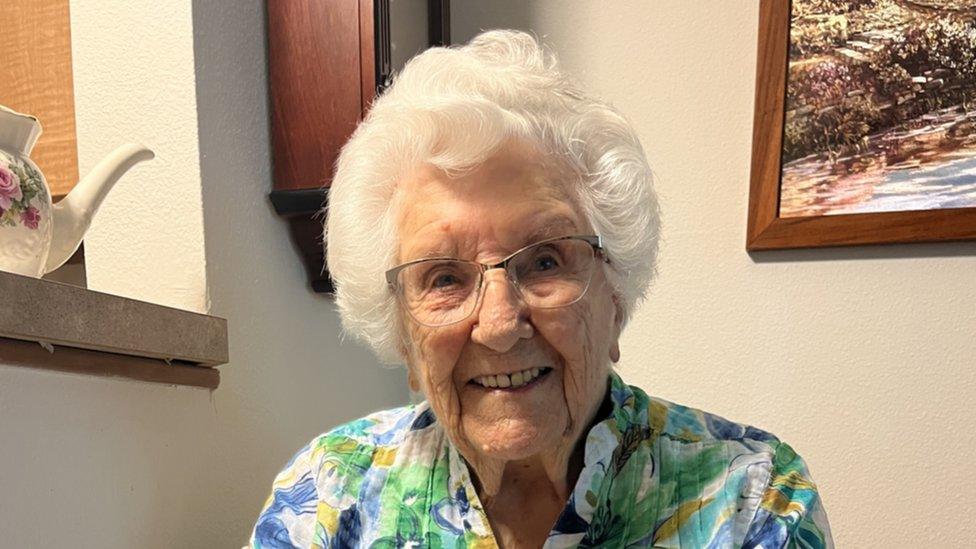
- Published29 May 2023
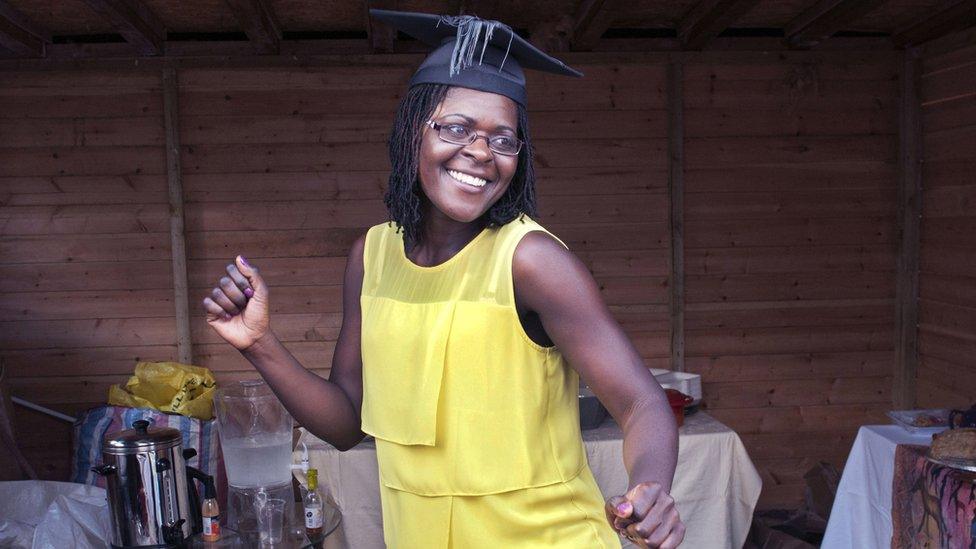
- Published10 March 2011